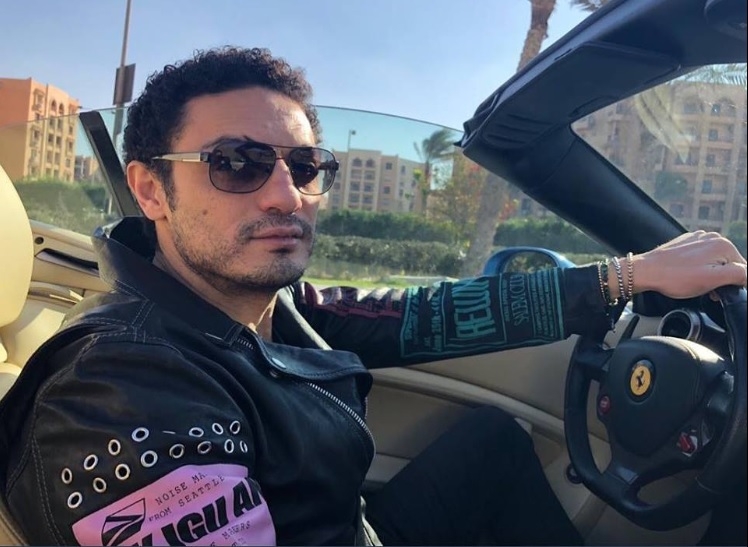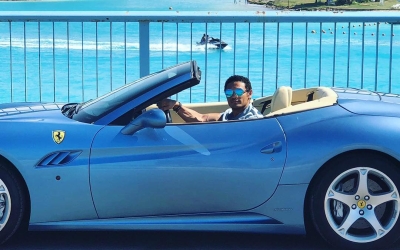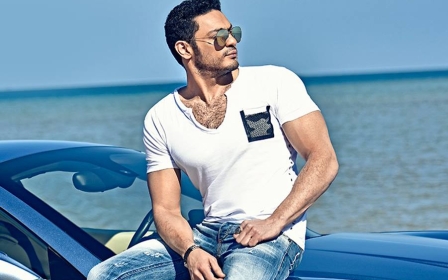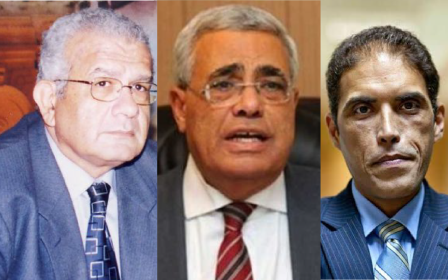Mohamed Ali: Egyptian whistleblower on the run in Spain says he's safe, but 'exhausted'

Spanish authorities have declined to say whether they are providing protection for an Egyptian businessman-turned-whistleblower whose viral video takedowns of Egypt's president from self-imposed exile have helped spark protests in Egypt.
Mohamed Ali, the 53-year-old film star and property tycoon, started posting videos on social media earlier this month, accusing the Egyptian government of corruption and encouraging demonstrations against president Abdel Fattah el-Sisi.
'Personal protection measures cannot be publicised, since they would lose effectiveness'
- Spanish Interior Ministry spokesperson
On Monday, following weekend protests across several Egyptian cities, Ali raised concerns for his safety, saying his "neck depends on the Spanish authorities” and holding Prime Minister Pedro Sanchez responsible for his safety.
"If I die in Spain, then this Europe is a fraud, like America, like everybody else," Ali said in a video posted on Twitter.
The Spanish Interior Ministry has declined to say whether it is providing Ali, who has said he was living in Barcelona, with police protection.
New MEE newsletter: Jerusalem Dispatch
Sign up to get the latest insights and analysis on Israel-Palestine, alongside Turkey Unpacked and other MEE newsletters
"For security reasons, we don’t talk about who has or does not have police protection," a ministry spokesperson told Middle East Eye in an email on Tuesday.
“Personal security measures are adopted based on the analysis and risk assessment made by police technicians, and political decisions can not interfering in their work. These personal protection measures cannot be publicised, since they would lose effectiveness,” the spokesperson wrote.
Officials in Catalonia's regional government did not respond to MEE's request for comment on Ali's safety.
Ali's concerns over his security come as Sisi and Sanchez met on the sidelines of the UN General Assembly on Tuesday and agreed to enhance cooperation between their countries.
According to Spanish daily El Mundo, the two discussed the fight against "Islamic fundamentalism", the situation in Libya, cooperation between the African Union and the European Union, and the need for Egypt to repay debts it owes to Spanish companies.
The Spanish prime minister also tweeted:
Late on Tuesday, Ali posted a new video, assuring viewers that he was safe, but "very exhausted" from being on the run, and said he had not received any protection.
"Thanks Sisi for wanting so much to kill someone so little. I can't speak inside or outside of Egypt," he said.
"I didn't apply formally for protection. I only asked verbally [in a video]. No one did anything to protect me, but I was able to flee from the bunch of bastards you paid to kill me unlawfully. You are asking me to return to Egypt, but you know they will slice me up like pastirma once I step foot in the airport."
On the run
For 15 years, Ali's property company had contracts with the Egyptian military on major construction projects. But when he wasn't paid earlier this year, Ali said he decided to go public and reveal details about the state's corrupt activities.
According to his account through his videos, he had been living between Spain and Egypt since 2015, but then moved permanently to the country about a year ago.
'As he is a public and well-known figure, the Spanish authorities cannot ignore his situation'
- Antoni Segura, Barcelona University professor
In his very first video, posted on 2 September, Ali said he was living with his five children in Barcelona, and feared for his family's safety after his decision to speak out.
In more recent videos, he says he has been on the run since then, travelling constantly between cities to avoid being captured by Egyptian government agents.
"If I die, my blood and the blood of the martyrs are the responsibility of the Egyptian people. We have sacrificed a lot, please, return the rights to Egypt. May the people rule the country," he said on Friday.
Spanish observers told MEE that the government should ensure that Ali is protected.
"Spanish authorities are obliged to guarantee the safety of any activist fleeing from a dictatorial regime such as the Egyptian [one]," said Antoni Segura, Middle East analyst and Barcelona University history professor.
“If Mohamed Ali has taken refuge here, his safety must be guaranteed. As he is a public and well-known figure, the Spanish authorities cannot ignore his situation,” he added.
Big glass pyramid
Before Ali started releasing his videos, he spent his time in Spain working on a film and promoting a large construction project just outside of Barcelona.
In 2016, he shot the end of The Other Land, a self-produced film in which he also starred, which tells the story of young Egyptians taking the dangerous journey across the Mediterranean to escape poverty, on the beaches of Sitges, a coastal city 40 kilometres south of the capital.
In April, he announced the opening of a Barcelona office for his company Amlaak for Investment and Development. A photo posted on his Facebook account in June shows him in a neighbourhood where his company is based.
He has given few interviews during his time in Spain, but told Vanity Fair's Spanish edition in July that he was enjoying his time in the country.
“Here people are kind and cheerful, they are not racist and their mood is like the Egyptians,” he was quoted as saying.
“I was looking for a place in Europe to spend the holidays, I liked Barcelona, its climate was suitable for my children so I decided to settle. I didn't choose Barcelona, she chose me because it's always the big one who chooses the little one."
His Vanity Fair profile came after Ali presented plans for a mega-project outside of Barcelona which would include a university featuring a giant glass pyramid and would symbolically, he said, connect the northern side of the Mediterranean with the south.
His plan, however, has garnered opposition from some civil society organisations who believe it is not in fitting with the local environment and say the prime motivation behind the project is real estate speculation.
Middle East Eye delivers independent and unrivalled coverage and analysis of the Middle East, North Africa and beyond. To learn more about republishing this content and the associated fees, please fill out this form. More about MEE can be found here.





